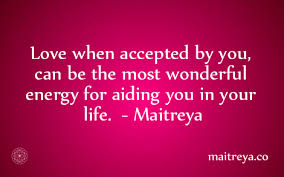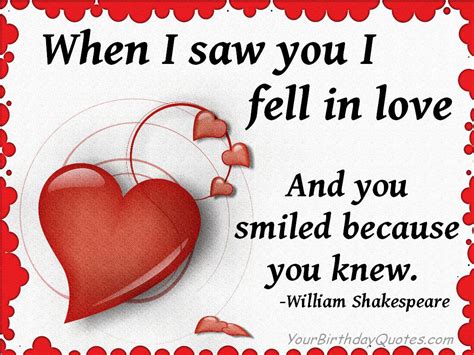Today, I am writing about how I often feel when I am in the presence of love directed towards me. What do you think the first line of the above quote I chose for the title of this blog was? It was about a version of love never failing the test. Yes, it was Unconditional Love, and through the experience of my identity, I know I have struggled with this over the years. Researching this I came across a great article on the matter: called Soulmates and Unconditional Love in a journal called PyschCentral by Darlene Lancer, here are the guts of it:
Are you searching for a soulmate or unconditional love? Your quest can set you on an impossible journey to find an ideal partner. The problem is twofold: People and relationships can never achieve perfection. Often unconditional and conditional love are confused.
Usually, we yearn for unconditional love because we didn’t receive it in childhood and fail to give it to ourselves. Of all relationships, parental love, particularly maternal love, is the most enduring form of unconditional love. (In prior generations, paternal love was thought of as conditional.) But in fact, most parents withdraw their love when they’re overstressed or when their children misbehave. To a child, even timeouts can feel like emotional abandonment. Thus, rightly or wrongly, most parents at times only love their children conditionally.
Is Unconditional Love Possible?
Unlike romantic love, unconditional love does not seek pleasure or gratification. Unconditional love is more a state of receptivity and allowing, which arises from our own “basic goodness,” says Trungpa Rimpoche. It’s the total acceptance of someone — powerful energy emanating from the heart.
Love that is unconditional transcends time, place, behaviour, and worldly concerns. We don’t decide who we love, and sometimes don’t know why. The motives and reasons of the heart are unfathomable, writes Carson McCullers:
The most outlandish people can be the stimulus for love. . . The preacher may love a fallen woman. The beloved may be treacherous, greasy-headed, and given to evil habits. Yes, and the lover may see this as clearly as anyone else — but that does not affect the evolution of his love one whit. ~ The Ballad of the Sad Café (2005), p. 26
McCullers explains that most of us prefer to love than be loved:
. . . the value and quality of any love is determined solely by the lover himself. It is for this reason that most of us would rather love than be loved. Almost everyone wants to be the lover. And the curt truth is that, in a deep secret way, the state of being beloved is intolerable to many. ~ ibid
Ideally, the giving and receiving of unconditional love is a unitary experience. Couples experience this most frequently when falling in love. It also happens when someone fearlessly opens up to us in an intimate setting. It’s a being-to-being recognition of that which is unconditional in each of us, our humanity, as if to lovingly say, “Namaste,” meaning: “The God (or divine consciousness) within me salutes the God within you.” When we delight in another’s being-ness, boundaries may dissolve in what feels like a spiritual experience. This allows energy to flow into places of resistance that surround our heart and can be deeply healing. It can happen during moments of vulnerability during therapy.
Yet, inevitably, these occurrences don’t last, and we return to our ordinary ego state — our conditioned self. We all have our preferences, idiosyncrasies, and particular tastes and needs, which have been conditioned by our upbringing, religion, society, and experiences. We also have limits about what we will and won’t accept in a relationship. When we love conditionally, it’s because we approve of our partner’s beliefs, needs, desires, and lifestyle. They match up with ours and give us comfort, companionship, and pleasure.
We’re fortunate to meet someone we can love conditionally and, at times, unconditionally. The combination of both forms of love in one relationship makes our attraction intense. It’s the closest we come to finding a soulmate.
How has humanity related to unconditional love over the decades, here are some ways they have taken a cut at it:

1. Rev. Melony McGant aka Miss Mellie Rainbow is a storyteller, thought-leader, humanist, poet, & compassionate communications professional with more than 30 years experience in helping people find love. How my Essence must be flowing I feel for love of another to be present.

2. As said in this quote it is a daily journey towards it: We Need Love.

3. There are no Google entries for Akashwani, there should be just because of this quote.

4. Oops, they got it wrong: Skin.

5. The King Dick Gregory is talking about is Martin Luther King Jnr.
During the turbulent 1960s, Gregory became a pioneer in stand-up comedy for his “no-holds-barred” sets, in which he mocked bigotry and racism. He performed primarily to black audiences at segregated clubs until 1961, when he became the first black comedian to successfully cross over to white audiences, appearing on television and putting out comedy record albums.
Gregory was at the forefront of political activism in the 1960s, when he protested the Vietnam War and racial injustice. He was arrested multiple times and went on many hunger strikes. He later became a speaker and author, primarily promoting spirituality.

6. You must have the strength in all situations, even the shitty ones: The Greatest Love of All.

7. The scientific explanation of why love is not based on looks.

8. Dedicated, Caring, Disciplined, Wise, Precise, Power-full, Committed and Cheeky are words often used to describe Tanya Curtis. She is the Founder and Managing Director of Fabic Behaviour Specialist Centre and Co-Founder and Managing Director of Sunlight Ink Publishing. Tanya is also an award-winning Business Woman, Behaviour Specialist, Teacher, Course Writer, Presenter, Author, DVD Presenter, App Creator, Product Developer, Mentor and Student Supervisor: Who You Are.

9. Bliss in Love equals acceptance of both the Shadow and the Light.

10. The times I have fallen in love have always been in spite of all the stories I tell myself why it won’t work out: Sing for My Life.

11. I think the two words at the bottom, self-acceptance sum it up pretty damn well!!

12. I can hardly see without my glasses at times, but I do see and agree with this: Superficial Love.

13. If the future Buddha says it, I’m in.

14. All or None: Love ‘Em All

15. And for the final lesson, a four-word mantra you must never forget in the game of love.
Opening the Heart
Unconditional love isn’t a high ideal we need to achieve. Actually, striving after it removes us from the experience. It’s always present as the unconditioned part of us — our “pure, primordial presence,” writes Buddhist psychologist John Welwood. He believes that we can glimpse it through mindfulness meditation. By observing our breath, we become more present and can appreciate our basic goodness. In mediation and in therapy, we find those places we choose to hide from ourselves and others.
Relationships can provide a path to opening the frozen places in our hearts. Love can melt a closed heart. However, maintaining that openness demands courage. The struggle for intimacy challenges us to continually reveal ourselves. Just when we’re tempted to judge, attack, or withdraw, we open to our hurt and that of our partner. In doing so, we discover what we’re hiding, and triggers from our past yield opportunities to heal and embrace more of ourselves.
The playlist today is chock full of pop divas singing about love. The only male starts off, John Legend doing one of his soulful numbers, then six divas: We begin with Rihanna, go back a few decades to Whitney Houston. Then hang around this century with Jessie J., Sia, Ruth B. and finish with K. Michelle: It Can Struggle but the Bond Cannot Be Broken.
if you wish to read my blog on a regular basis remember to sign up on the list with your email address. Love is a great subject for Love and Respect for All Everybody Included to manifest through. Until next time we meet, my dear friends.


Unconditional love is indeed a good topic to explore. I find that I am more accepting of ‘the flaws and blemishes’ in others than I am of my own. Does that sound familiar?
LikeLike